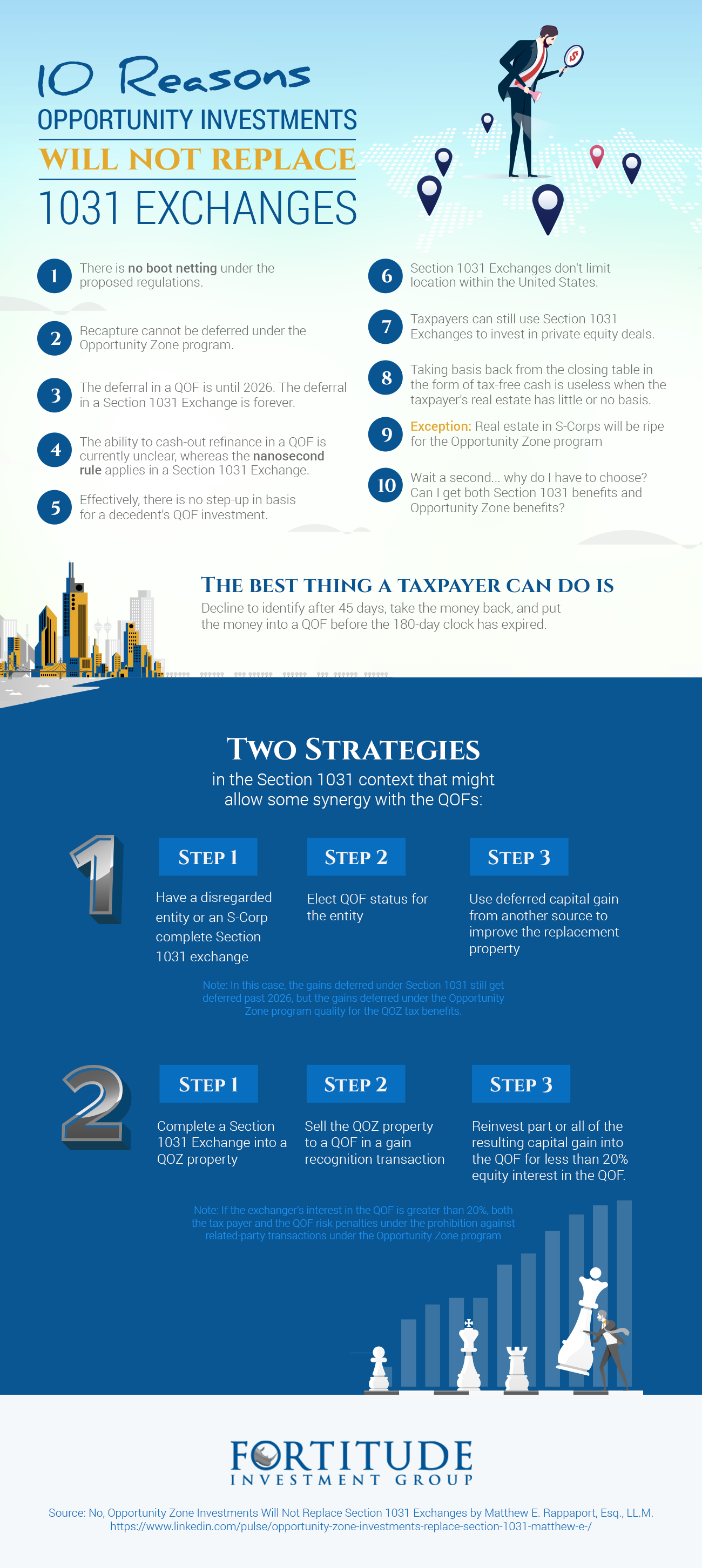About a month ago, one of our highly respected colleagues and a good friend of the Fortitude Investments Team Matthew Rappaport, Esq, LLM (an attorney in tax planning, structuring & compliance) shared a very informative article that we felt would be of value to our loyal blog subscribers. Mathew has helped us in numerous 1031 Exchanges and is a thought leader in the complexities of the American tax system.
In the following blog post, we shared a small excerpt from Matthew's original article on LinkedIn. In his article, Matthew explains the reasons why Opportunity Zone Investments Will Not Replace Section 1031 Exchanges. Here is a small portion of Mathew's original article on the Opportunity Program.
On November 18th, 2018, Matthew wrote:
As everybody probably knows by now, I've been part of the enthusiastic chorus of advisors singing the praises of the Opportunity Zone Program. Make no mistake: the program is a game-changer for private equity and the real estate industry. We've already seen widespread impact across the country in many markets where Opportunity Zones are located.
But some of the hype has led commentators to declare the end of the Section 1031 exchange. As the Opportunity Zone program takes shape, and as I conduct in-depth conversations with clients and advisors about taking advantage of the tax incentives, the way taxpayers will approach the program has become increasingly clear. My prediction based on these conversations is that Qualified Opportunity Funds will primarily be capitalized with proceeds of sales from non-real estate assets, such as stocks, bonds, alternatives (including REITs, which are not 1031-eligible), closely held businesses, artwork, and classic cars. For sellers of real estate, Section 1031 exchanges will still be the primary tax strategy.
According to Matthew's rationale why, here are some points to consider:

The material and views are those solely of the author, Matthew Rappaport, and does not necessarily represent the views of the presenting party, nor their affiliates.
To read more of Matthew’s original blog article, click here.
If you have any questions about this subject or know of anyone considering a 1031 Tax-Deferred Exchange and needs a little guidance, please feel free to reach out to our team. We look forward to being of service to you!





Let Us Know What You Thought about this Post.
Put your Comment Below.